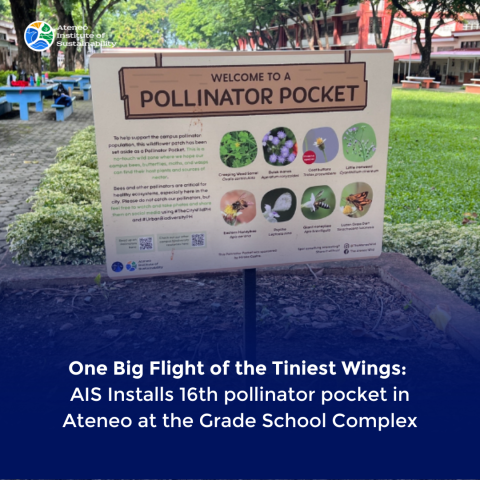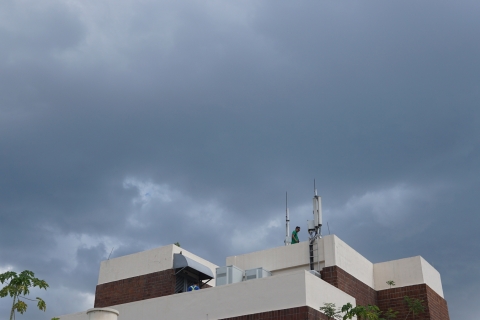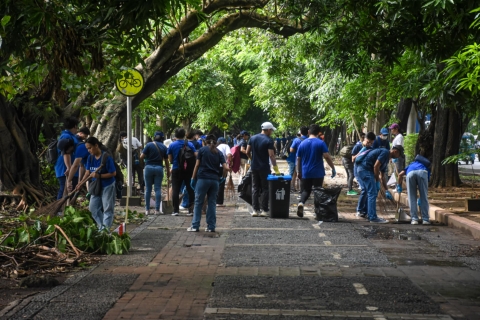AIS conducts waste audit workshop for CFMO staff in light of Ateneo’s Laudato Si’ plan
11 Apr 2025 | Jostle Doen Pilayre

In line with its Laudato Si’ Plan and push for sustainable campus operations, the Ateneo Institute of Sustainability (AIS) spearheaded a Waste Audit Workshop at the Central Facilities Management Office (CFMO) Conference Room 2 last 18 March 2025
The workshop brought together CFMO section heads and staff to prepare for an upcoming University-wide waste audit initiative. This equipped the CFMO personnel with essential knowledge and practical skills to conduct waste audits across the University.
Spanning for three hours, the session included lectures on Solid Waste Management, Waste Audit Methodology, a Hands-on Simulation Activity, and Reporting Methods on Auditing.
Overviews, refreshers
Arch Michael Canlas, the Director of CFMO, opened the workshop by introducing the importance of waste audits for sustainability at organizational and community levels. He also gave a quick recap of Ateneo’s sustainability journey throughout the years.
Following suit with the first session was Angelica D Mata-Jamilan, the Program Officer for Organizational Sustainability, who facilitated a refresher on current realities of municipal wastes and its effect on environmental degradation and climate change. She also shared solid waste management practices in the Philippines by conceptualizing how waste can be seen as an “untapped resource.”
In the refresher, she introduced a paradigm shift in understanding the importance of segregation and systemic ecological waste practices across different sectors.
Waste technicalities, auditing mechanisms
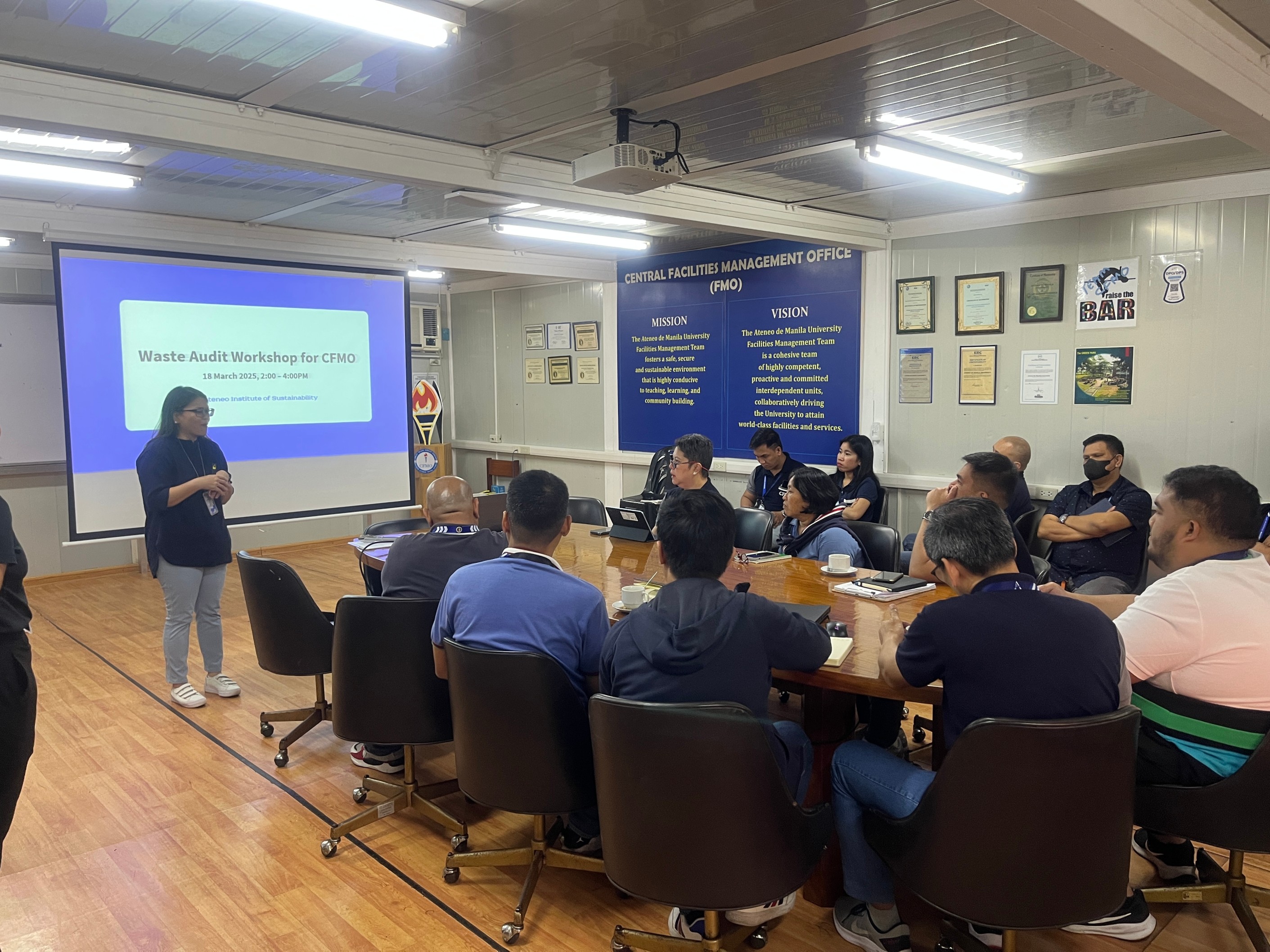
Meanwhile, Abigail Marie T Favis, an Assistant Professor at the Department of Environmental Science and former Program Manager for Campus Sustainability at AIS, discussed the methodology of waste audits, including waste classifications, team roles, safety protocols, and technical procedures.
“You cannot manage what you cannot measure. Knowing the types and amounts of waste helps to design effective and efficient interventions,” emphasized Favis.
Furthermore, Favis led a hands-on activity where participants simulated a waste audit using actual materials from the Ateneo Junior High School’s Materials Recovery Facility.
This practical session helped CFMO personnel internalize waste characterization procedures and confront real logistical challenges in the audit, drawing insights into their central role in Waste Auditing.
Favis also walked participants through the reporting methods necessary to turn raw audit data into actionable recommendations. She highlighted how these audit results can be translated into improved institutional waste reduction strategies.
The training concluded with Josiah Theodore Cacayan, the Program Head of Organizational Sustainability at AIS, reiterating the role of accurate waste data and importance of collaboration among offices to further advancing Ateneo's environmental goals.
Moving forward with Laudato Si’
Soon after, Cacayan announced that CFMO will implement separate waste audits during the wet and dry seasons as part of Ateneo’s long-term sustainability strategy. These audits will provide baseline data for future policy revisions and waste management interventions on campus. In the current draft of the Sustainable University Master Plan, part of the community goals is reduction in residual waste and upscaling our recycling facilities on campus.
The training is part of Ateneo’s broader commitment to integral ecology, a socio-ecological systems approach that emphasizes community and culture—outlined in the draft of the Sustainable University Master Plan (SUMP) and the Laudato Si’ University Goals. With this, Ateneo continues to solidify its leadership in environmental stewardship and campus-wide sustainability in the Philippines.






